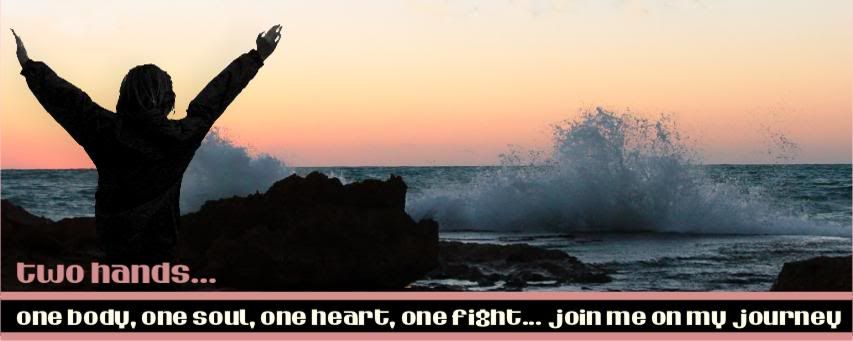 From Merriam-Webster's Online Dictionary:
From Merriam-Webster's Online Dictionary:
Main Entry: com·pas·sion
Pronunciation: k&m-'pa-sh&n
sympathetic consciousness of others' distress together with a
desire to alleviate it
In addition to the practice of medicine, doctors these days have much to be concerned with especially in the area of law suits. In our litigious society, we have the ability to sue if we don't like the way the doctor looks at us, touches us, or talks to us. We can also sue if he really screws things up or we simply don't like the outcome and the proper spin is applied to make it appear as though it is the fault of the doctor or he/she simple didn't properly inform the patient. As a result there is a flurry of paperwork that must be signed, witnesses have to be present during patient/doctor interaction, and then of course there is the business of treating the patient. It is no wonder that the relationship between the doctor and the patient can be cold and impersonal. I don't dispute that patients should have this right, but its abuse has sent healthcare costs soaring and it has changed the way medical care is provided in general.
When fighting cancer, I want to know my doctor cares about me personally. I want to know that the details won't slip his mind because I am not important enough. I want to know that he will do everything in his power (and allowed by the mighty gods of the HMOs and beyond when necessary) to fight for me. I want someone who is on my side helping me have the greatest fighting chance to succeed. In order to do that, a doctor needs to treat me with compassion. He needs to treat me as a human and show that he cares.
I have interacted with so many people from the medical field in the last six months. While the vast majority of my experience has been positive, I have also observed something very unique about the people who work in the oncology field. The people drawn to this field are very special indeed. It isn't just a job, it is a vocation. I have been lucky to encounter excellent doctors, but of everyone I have met, one person stands out as truly demonstrating this characteristic.
Perhaps it is the friendly smile and the warm greeting. Perhaps it is the way he relates to my heritage or the way he pronounces my name. Perhaps it is the way he gently caressed my back after surgery knowing it was aching while I was sitting up for his examination. Maybe it is the way he comfortingly put his arm around me and lets me know that all is okay now. It could be his confidence, his skills, his charm, but mainly it is that he treated me like a human being with emotions and feelings and concerns. He empowered me to feel confident to make decisions and know that all would be okay. He is truly a healer.
Grazie mille, Dr. G.














